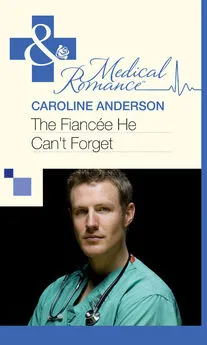Т. Шелкова - Can You Speak Over the Telephone. Как вести беседу по телефону
- Название:Can You Speak Over the Telephone. Как вести беседу по телефону
- Автор:
- Жанр:
- Издательство:Высшая школа
- Год:1989
- Город:М.
- ISBN:5-06-001624-2
- Рейтинг:
- Избранное:Добавить в избранное
-
Отзывы:
-
Ваша оценка:
Т. Шелкова - Can You Speak Over the Telephone. Как вести беседу по телефону краткое содержание
Ведение разговора по телефону на иностранном языке требует от обучающегося определенных навыков понимания, восприятия и удержания в памяти услышанного, а также незамедлительной словесной реакции на услышанное. Недостаточное развитие этих навыков является препятствием к тому, чтобы хорошо и уверенно говорить по телефону.
Пособие ставит своей целью помочь учащимся овладеть навыками беседы по телефону, пользоваться общепринятой терминологией.
Во второе издание (1-е — 1980 г.) внесены исправления редакционного характера.
Для лиц, самостоятельно совершенствующих свои знания английского языка.
Can You Speak Over the Telephone. Как вести беседу по телефону - читать онлайн бесплатно полную версию (весь текст целиком)
Интервал:
Закладка:
fed: gave
106
guff: a colloquialism for “information”, often used with the implication of irrelevance
107
lay it on too thick: exaggerate
108
go off: take a disliking to
109
cake walk it: the sense here is “get the job easily”. A “cake walk” is a simple undertaking.
110
keep my fingers crossed: the reference is to the traditional belief that crossing one’s fingers is a way of guarding against bad luck
111
a bit of a bind: a nuisance
112
the moors: вересковая пустошь, охотничье угодье (there are a great deal of open moorland in Yorkshire within easy reach of the large towns, and Sunday mornings walks there are popular)
113
steady on: a means of asking someone to be slower or more cautious in their behaviour or statements
114
pop out: go out
115
the Home Counties: the counties adjacent to London
116
turn in: go to bed
117
within reason: not beyond one’s possibilities
118
to be up to somethingusually implies something not altogether permissible, or at least surreptitious. “What have you been up to this time?” implies something likely to involve punishment. So the phrase is used jocularly, from one friend to another, implying that he or she must have been doing something out of the ordinary or at least interesting.
119
I’m afraidimplies no fear, only regret that she has nothing more interesting to tell.
120
Just the usual grindis a way of describing monotony; nothing severe or otherwise unpleasant is implied.
121
come up: two idioms with “come” — “come up” meaning “to arise, to occur” and “come off meaning “to take place”
122
play hostess: “play” is often used as here to mean “fulfil the function of.
123
this do at Turin: “do”, used as a noun, is one of the many colloquial words for a social occasion.
124
Well, look hereis more emphatic than “I say”, to begin a new statement.
125
Why don’t I come and look after…: this is a more forceful phrase than “Why shouldn’t I?”. It contains the hint of a firm offer which ought not to be refused.
126
demons: lively children are conventionally referred to as “young demons” — a phrase conveying admiration for their vitality but at the same time sympathy for the trouble which they can cause.
127
get onmeans “get on well together”, “like each other and are good companions”.
128
sort it out with James: discuss this question with James
129
I’ll come oversimply means “I’ll come to you”.
130
frig: refrigerator
131
Is this Mrs Jones?: Americans begin a telephone call by asking, “Is this…?” whereas the English ask, “Is that…?”
132
To callin British English more often means to come in person, though it can have the sense of “calling up” or “ringing up” on the telephone, which is always the American meaning.
133
to rent: houses in England are usually said to be “to let”. The distinction is that you let your house to someone, but you rent a house from someone.
134
right now: an English person would probably just say “now” or “at the moment”.
135
Closetis rarely used in England and would generally be taken to refer to “water-closet”.
136
Gosh!: an exclamation of extreme surprise
137
stowawayбезбилетный пассажир, заяц
138
JordacheДжордак
139
RudolphРудольф
140
SarahCapa
141
DeborahДебора
142
LeighЛи (мужское имя)
143
five-seven5 футов и 7 дюймов (о росте) = 152 см
144
one-twenty and one-thirty120 фунтов и 130 фунтов (о весе) = 54 кг и 58 кг
145
trouble shooterспециальный уполномоченный по улаживанию конфликтов
146
We’ll run what we have.Мы опубликуем то, что у нас есть.
147
C’est moi Fr. Это я.
148
You really must take a grip on yourself.Вы действительно должны взять себя в руки.
149
Service wives have it rough.Таков удел жен военных.
150
GretchenГретхен
151
I’m just dawdling idlyя просто бездельничаю
152
to inductпризывать на военную службу
153
if he’s goofed school: if he’s not doing well at school
154
he’d just fall over himself with eagernessон бы из кожи вон вылез
155
the French Sûrété Nationaleфранцузская сыскная полиция.
156
a bit marginal: a bit risky
157
things are beginning to sit up and look prettyситуация проясняется
158
cachet Fr. here: a box
159
funny colloq. подозрительный
160
bug sl: an infectious disease
Интервал:
Закладка:










